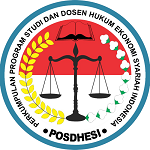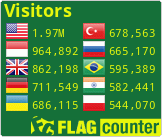Assessing The Regulation of Tiktok Shop by The Minister of Trade Through Maqashid Syariah
DOI:
https://doi.org/10.32332/muamalah.v3i2.9309Keywords:
e-commerce, tiktok shop, regulation, Maqāsid al-Shari’āh.Abstract
Integrating social media platforms in commercial activities introduces complex challenges, particularly in consumer protection, economic justice, and alignment with ethical and legal standards. This study aims to analyze the Minister of Trade’s regulation on TikTok Shop through the lens of Maqashid Syariah to assess its compatibility with Islamic moral values and legal principles. Adopting a qualitative research methodology utilizes a formal literature review and content analysis to examine the relevant provisions of the regulation. The findings indicate that current laws governing online commerce require further adaptation to better align with the principles of Maqashid Syariah, ensuring fairness, sustainability, and societal welfare in digital transactions. This research contributes to the ongoing discourse on strengthening the regulatory framework for online commerce, promoting ethical standards, and fostering a more equitable and sustainable business environment. The study also offers a foundation for policy development that supports the growth of online commerce in a manner that benefits all stakeholders while adhering to Islamic principles of justice and public welfare.
Downloads
References
Abror, Mursyidi. “Implementation of Maqashid Sharia and Islamic Corporate Social Responsibility in Production Ethics.” IMKA Implementasi Manajemen & Kewirausahaan. Vol. 1, 2021.
Al-Ayubi, Solahuddin, and Siti Halawatuddu’a. “MAQASID AL-SHARIA IN ISLAMIC FINANCE.” Jurnal Al-Dustur 4, no. 2 (December 1, 2021): 197–215. https://doi.org/10.30863/jad.v4i2.1823.
Al-Ayyubi, Solahuddin, Evania Herindar, and Muhammad Nabhan Perdana. “MAQASID SHARIA IN TABARRU’ CONTRACT LAWS.” Jurnal Al-Dustur 6, no. 1 (June 1, 2023): 28–49. https://doi.org/10.30863/aldustur.v6i1.4194.
Dian Humairoh, Iftitah, Mia Rosmiawati, Jalan Kalimantan No, Krajan Timur, Kec Sumbersari, Kabupaten Jember, and Jawa Timur. “Problematika Normatif Dalam Peraturan Menteri Perdagangan Nomor 31 Tahun 2023 Terkait Larangan Social-Commerce Pada Tiktok Shop.” Jurnal Crepido. Vol. 05, 2023.
Febriana Sari, Putri, and Dwi Fatrianto Suyatno. “Pengukuran Kualitas Layanan Pada Aplikasi Tiktok Shop Menggunakan Metode E-Servqual Dan IPA (Importance Performance Analysis).” (Journal of Emerging Information Systems and Business Intelligence 4 (2023).
Hariyanto, Sigit, and Amin Wahyudi. “DIGITAL BUSINESS ETHICS THE ROLE OF GOVERNMENT POLICY ON TIKTOK SHOP INDONESIA LICENSE REVOCATION.” Jurnal Masharif Al-Syariah: Jurnal Ekonomi Dan Perbankan Syariah 8 (2023). https://doi.org/10.30651/jms.v8i4.20910.
Indayani, Velia Putri. “Dampak e Commerce Tiktok Shop Terhadap Perilaku Konsumsi Mahasiswa Febi Iain Ponorogo Berdasarkan Perspektif Ekonomi Islam,” 2024.
Ishak, Muhammad Shahrul Ifwat, and Fathullah Asni. “The Role of Maqasid Al-Shariʿah in Applying Fiqh Muamalat into Modern Islamic Banking in Malaysia.” Journal of Islamic Accounting and Business Research 11, no. 9 (December 6, 2020): 2137–54. https://doi.org/10.1108/JIABR-12-2019-0224.
Kartika, Sahnaz, and Dhiauddin Tanjung. “SISTEM AKAD TRANSAKSI JUAL BELI ONLINE DROPSHIPPING PERSPEKTIF MAQASHID SYARI’AH.” HUMAN FALAH 9 (2022).
Marbun, Bela, and Anuar Rasyid. “PENGARUH TIKTOK SHOP TERHADAP MOTIF BELANJA ONLINE MAHASISWA UNIVERSITAS ISLAM RIAU.” Jurnal Ilmu Komunikasi | 11, no. 2 (2022): 29–40.
Muna, Kholifatul, and Budi Santoso. “Regulasi Izin Perdagangan TikTok Shop Sebagai Fitur Tambahan Aplikasi TikTok Di Indonesia.” Jurnal USM Law Review 7, no. 1 (March 9, 2024). https://doi.org/10.46773/djce.v1i2.329.
Munawarah, Alfiani, Anisa Minal Janah, Eka Alsa Oktarini, and Husnul Khatimah. “PERAN EKONOMI DIGITAL PERKEMBANGAN PASAR MODERN DI INDONESIA.” Jurnal Al-Aflah 1, no. 2 (December 4, 2022). https://doi.org/https://doi.org/10.23971/al-aflah.v1i2.5876.
Nata, Mada Angga Dwi, and Haryono Haryono. “IMPLEMENTASI EKONOMI KERAKYATAN BERBASIS EKONOMI DIGITAL UNTUK MEMBANGKITKAN UMKM PADA MASA PANDEMI COVID 19.” PROMOSI (Jurnal Pendidikan Ekonomi) 10, no. 1 (December 4, 2022). https://doi.org/http://dx.doi.org/10.24127/pro.v10i1.5410.
Nurussofiah, Febi Fatlika, Ummul Karimah, Siti Khodijah, and Ulil Hidayah. “PENERAPAN MEDIA SOSIAL SEBAGAI MEDIA PEMASARAN ONLINE DI ERA GLOBALISASI.” DEVELOPMENT: Journal of Community Engagement 1, no. 2 (March 9, 2022): 92–108. https://doi.org/https://doi.org/10.46773/djce.v1i2.329.
Priyono, Muhammad Bintang, and Dian Permata Sari. “Dampak Aplikasi Tiktok Dan Tiktok Shop Terhadap UMKM Di Indonesia.” Jurnal Ilmiah Wahana Pendidikan 9, no. 17 (2023): 497–506. https://doi.org/10.5281/zenodo.8315865.
Tilawati, Anis. “Jual Beli Online Perspektif Maqashid Tafsir Jasser Auda.” Jurnal Al-Fath 14 (2020): 1–28.
Wijoyo, Sandy Gunarso. “Fenomena Aplikasi TikTok Shop Sebagai Alternatif Belanja Hemat” 2, no. 2 (2023): 109.
Zulfa, Nurhajijah, Nila Nur Millah, and Kartika Novitasari. “Konsep Maqashid Syariah Dalam Praktik Strategi Pemasaran Tiktok Dengan Landasan Etika Bisnis Islam.” | ANALYSIS : Accounting, Management, Economics, and Business 2, no. 1 (2024). https://doi.org/10.56855/analysis.v2i1.928.
Downloads
Published
Issue
Section
License
Copyright (c) 2024 Muhammad Rifky Pratama, Fatimah Piracha

This work is licensed under a Creative Commons Attribution-ShareAlike 4.0 International License.
All articles in the Mu'amalah: Jurnal Hukum Ekonomi Syariah can be disseminated on condition that they still include the identity of the article and the source (Mu'amalah). The publisher is not responsible for the contents of the article. The content of the article is the sole responsibility of the author.
Authors who publish this subject agree to the following terms:
First, the Authors retain copyright and grant the journal rights from the first publication with the work simultaneously licensed under a Creative Commons Attribution-ShareAlike 4.0 International License that allows others to share the work with an acknowledgement of the work's authorship and initial publication in this journal.
Secondly, the authors can enter into a separate or an acknowledgement of its initial (e.g., post-institutional repository or publish it in a book) publication in this journal.
![]()
Third, the authors are permitted and encouraged to post their work online (e.g., in institutional repositories or on their website) before publishing work is cited.








